FATAL ATTRACTION. Masterful timeless thriller
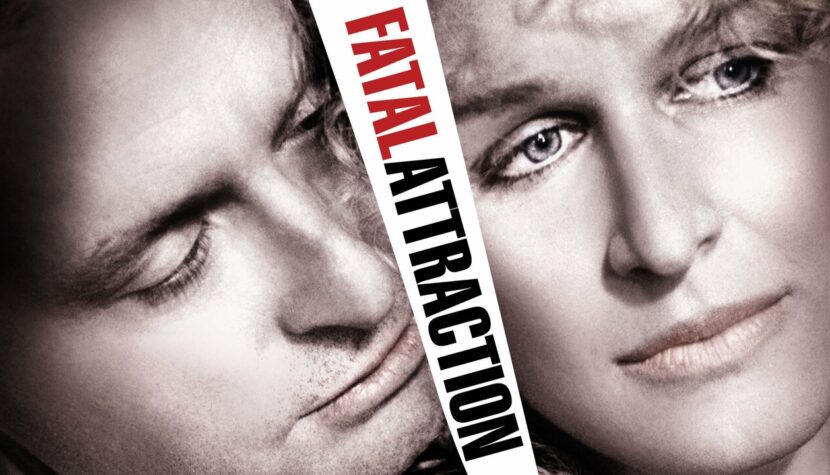
Primarily because it can be regarded as one of those trendy, pseudo-psychological guides with catchy titles like “Why Men Love Bitches” or even better, “How to Recognize That Your New Girlfriend is a Demonic Psychopath”. Surely, it would save many bunny lives and reduce the number of car accidents.
Fatal Attraction is a stylish, sexually charged, and erotic thriller that cannot be ignored. Dan Gallagher, portrayed by the excellent Michael Douglas, is a man who seems to have it all – a beautiful and good wife, a sweet daughter, and a dog, in addition to being a successful New York lawyer. Everything changes when he meets the demonic Alex, who beneath her curly locks turns out to hide the face of a deceptive monster, a true 20th-century vampiress. In Glenn Close’s portrayal, one can easily find signs of borderline personality disorder. Bored with domestic bliss, Dan spends some exhilarating moments with Alex on the kitchen counter and in the elevator, disregarding “marital fidelity and honesty,” for which he will pay a high price. The woman is not just emotionally unstable and hysterical, but a psychopath straight from hell, who will stop at nothing to achieve her goal.

The psychopathic femme fatale spares no effort: her repertoire includes harassing Dan with phone calls, visiting his office, pouring acid on his car, or even boiling his daughter’s pet. All to ensure that the “love of her life” and the father of her supposed child stay with her, so they can create the happy, loving family the psychopath dreams of. The tormented lawyer doesn’t hesitate to take even the most radical steps to protect his good name and, above all, his wife and daughter.
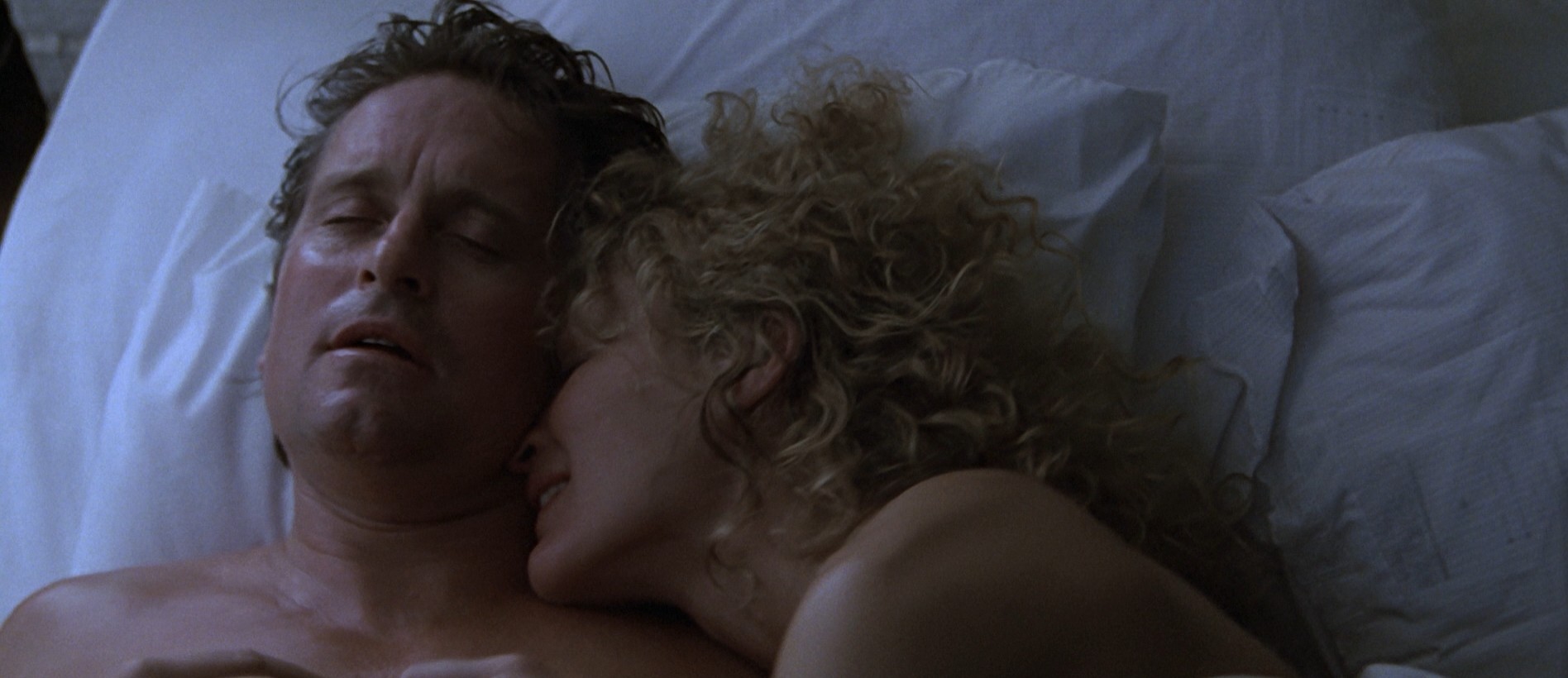
The acting deserves special praise: Michael Douglas delivers a phenomenal performance, portraying a man overwhelmed by the consequences of his actions, terrified of losing his family, an unfaithful lawyer. He convincingly portrays both a passionate lover and a loving husband and father, until finally becoming a ruthless man willing to do anything to protect his loved ones. Glenn Close also shines in the role of the haunting lover, demonic as a Fleet Street barber. Anne Archer, the cuckolded wife, is very convincing as a somewhat naive and initially genderless but beautiful guardian of the domestic hearth. Both female characters were heavily criticized by feminists, who saw in Lyne’s work as much gargantuan chauvinism as in the construction of urinals in men’s bathrooms. They accused the director of Fatal Attraction of reducing women to either loving and forgiving housewives, with horns that could put many a deer to shame, or possessive psychopaths with murderous tendencies who will stop at nothing to achieve their goal (literally, over dead bodies).
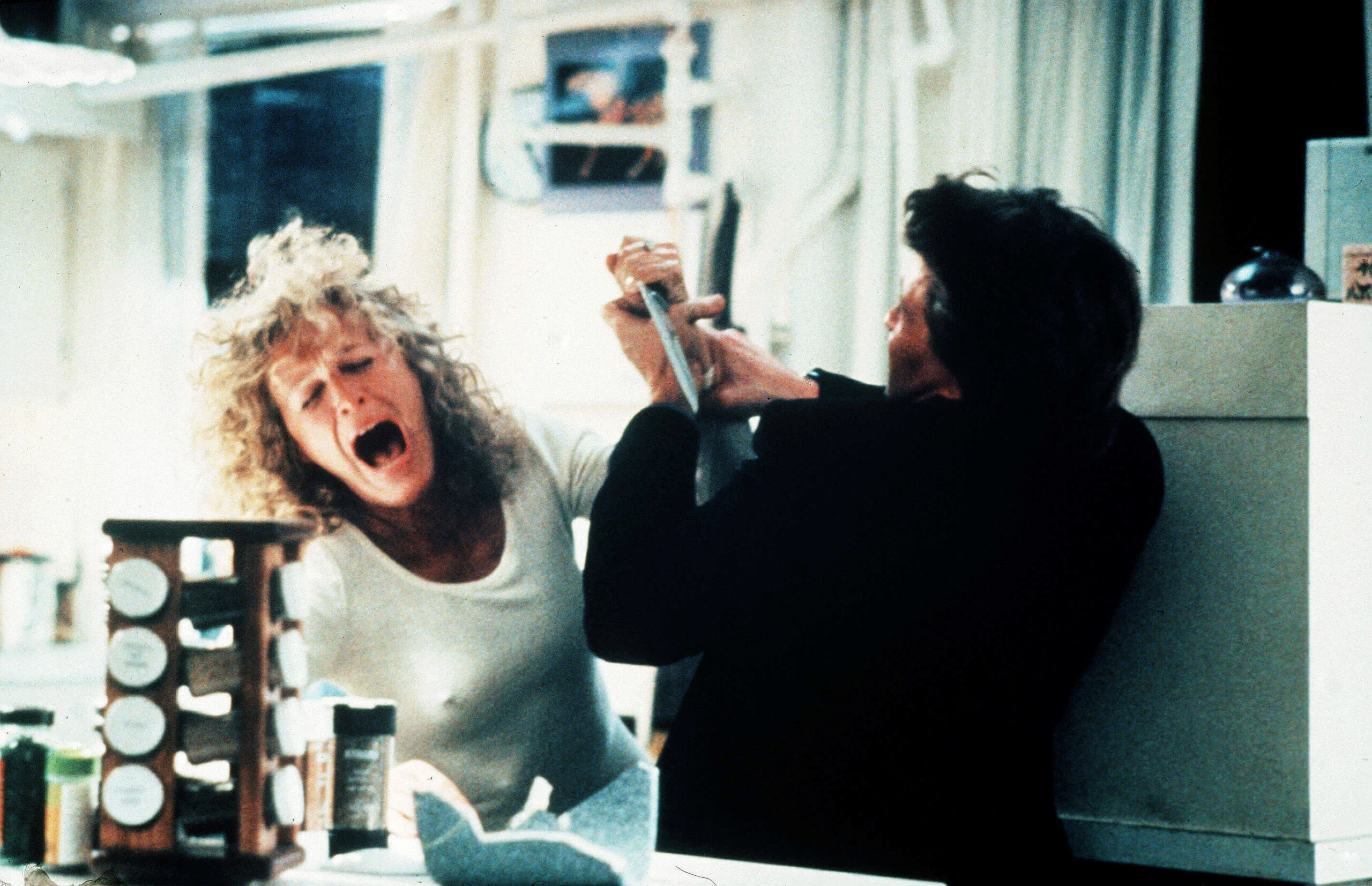
The great and meticulously built tension affects the viewer, who stares at the screen as if hypnotized even a moment after the end credits, shaking their head in disbelief and trying to shake off the film’s penetrating, stifling atmosphere. The gloomy, gray streets of New York, depicted in the pouring rain, perfectly suit the action, serving as a backdrop. Adrian Lyne has created a world that osmotically permeates the viewer with its atmosphere, affecting them long after the end of the screening, causing a split-second unease upon hearing the phone ring.
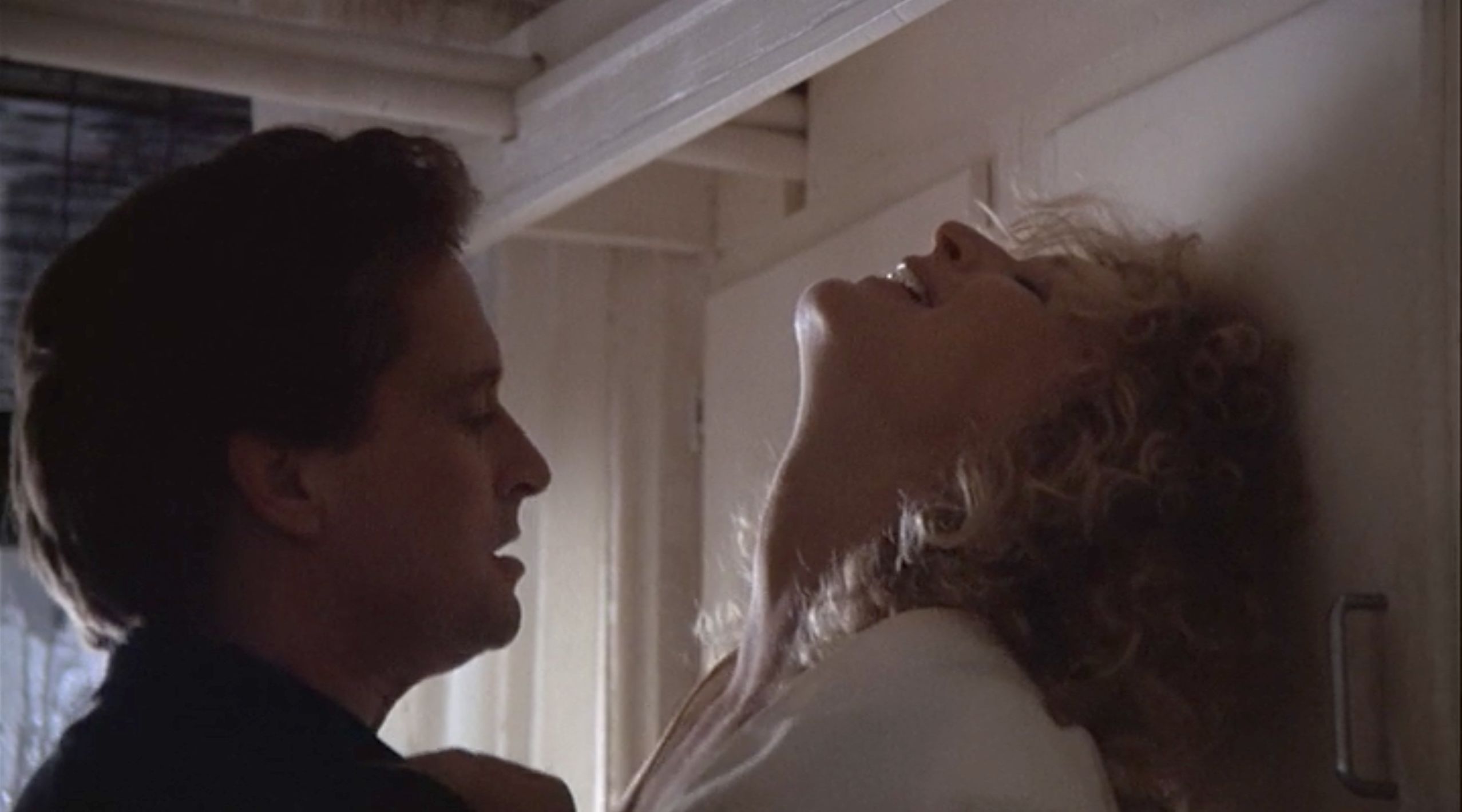
Another strong point of Fatal Attraction is the music, composed by Maurice Jarre. Perfectly fitting the atmosphere, it underscores the characters’ situations and makes the film even more unforgettable. This is particularly evident in the scene showing a happy Dan spending time with family and friends, contrasted with the lonely Alex, alternately turning the light on and off, slowly descending into despair. The musical backdrop for this scene is an aria from Puccini’s Madame Butterfly, the lovers’ favorite opera. The same aria appears in the alternative ending of the film (referring to the opera’s plot), which did not meet with the audience’s approval at the pre-premiere screening but is available in the depths of the internet.
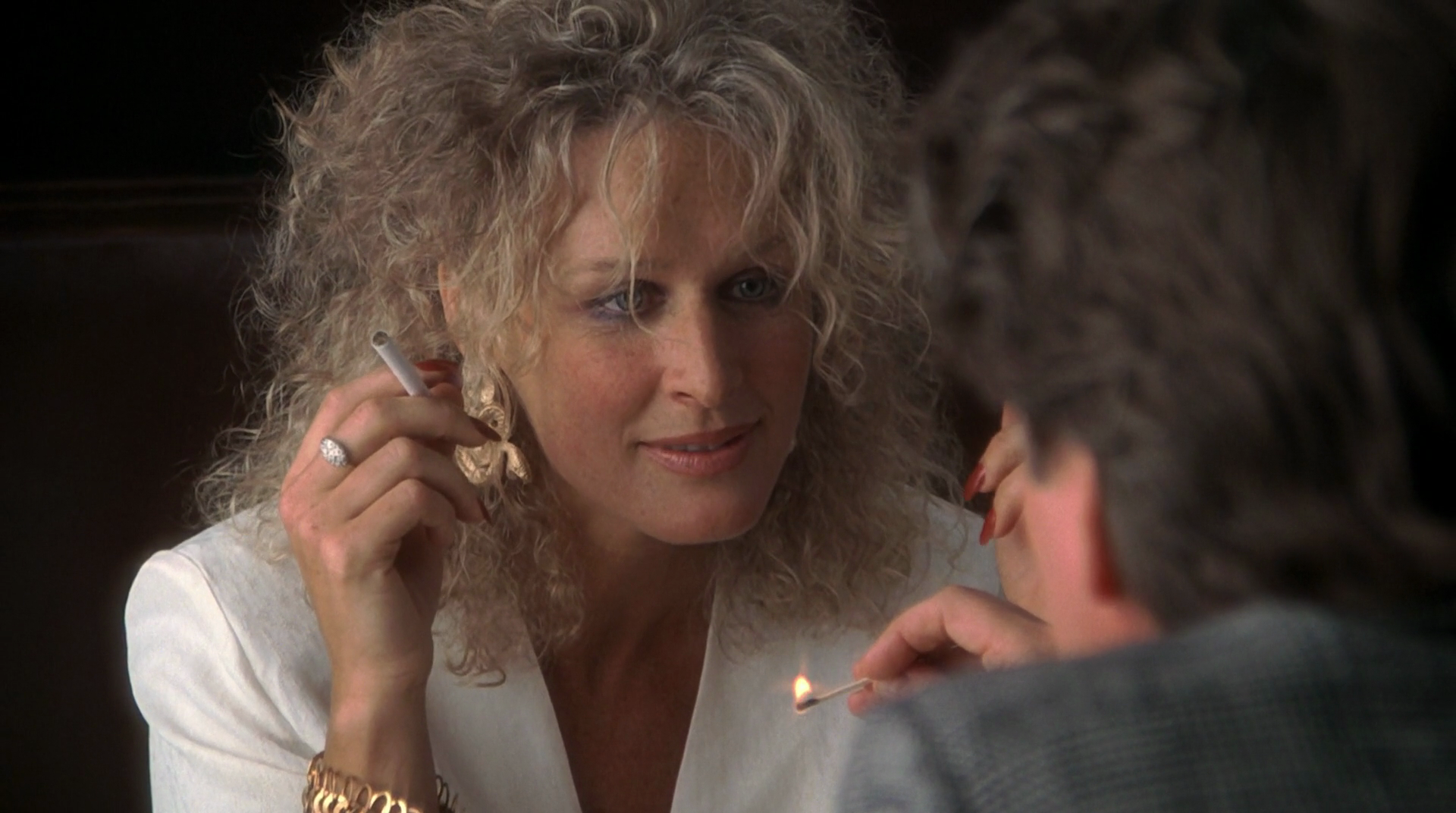
Fatal Attraction can definitely be considered a timeless film. Today, in the age of the internet and stalking love, the problem remains relevant, and the means of terrorizing a lover have greatly expanded. It can be interpreted as a morality tale, a warning against marital infidelity, or as a case study of a person with borderline personality disorder, ready to harm everyone around them in pursuit of their unrealistic goals. Above all, it is a film that provokes thoughts about the consequences of our actions: a glance that led to an affair; an affair that led to tragedy.
Words by Patrycja Foszcz

